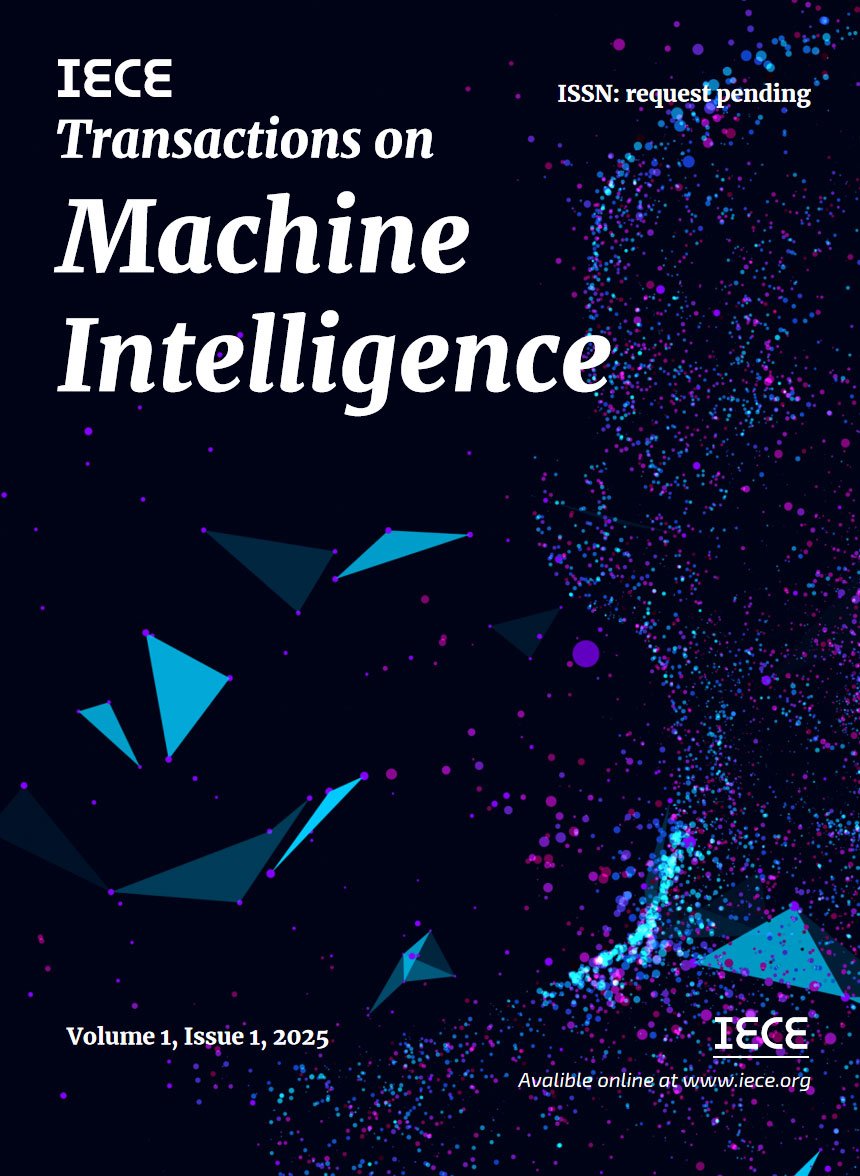Journal Information
IECE Transactions on Machine Intelligence
Online ISSN: request pending
Print ISSN: request pending
Publishing model: Hybrid
DOI Prefix: 10.62762/TMI
Aims & Scope
The IECE Transactions on Machine Intelligence journal is a platform dedicated to advancing the field of machine-learning (ML), deep-learning (DL), artificial intelligence (AI) and its subdomains, with a primary focus on fostering innovative research, methodologies, and applications. The journal aims to publish high-quality research that bridges the gap between theoretical advances and practical implementations of AI and ML technologies. It seeks to serve as a comprehensive repository of knowledge for academics, industry professionals, and practitioners who are driving the evolution of intelligent systems.
The journal is committed to exploring diverse aspects of machine intelligence, ranging from foundational theories to state-of-the-art applications. It encourages the dissemination of interdisciplinary research that integrates concepts from computer science, mathematics, cognitive science, neuroscience, and engineering, among other fields. By doing so, it aims to contribute to solving complex real-world problems and advancing the understanding of intelligence in artificial and biological systems.
Journal Scope:
The scope of IECE Transactions on Machine Intelligence encompasses a broad range of topics in artificial intelligence and machine learning. It includes, but is not limited to, the following areas:
1. Theoretical Foundations of AI
1. Development of new algorithms and frameworks for machine intelligence.
2. Study of computational complexity in intelligent systems.
3. Exploration of probabilistic, statistical, and symbolic reasoning methods.
4. Formal methods for explainable AI and trustworthy AI.
2. Machine Learning and Deep Learning
1. Supervised, unsupervised, and reinforcement learning techniques.
2. Advances in neural networks, including architectures and training paradigms.
3. Transfer learning, meta-learning, and continual learning.
4. Optimization strategies and techniques for scalable learning systems.
3. Natural Language Processing (NLP)
1. Research on language models, sentiment analysis, and text generation.
2. Dialogue systems, speech recognition, and multilingual processing.
3. Semantics, pragmatics, and their integration in computational systems.
4. Ethical considerations in NLP, such as bias and fairness.
4. Computer Vision
1. Object detection, segmentation, and image classification.
2. Scene understanding and generative models for visual content.
3. Applications in augmented reality, medical imaging, and autonomous systems.
4. Intersection of vision and other modalities, such as vision-language models.
5. Robotics and Autonomous Systems
1. Development of intelligent robots for industrial, healthcare, and consumer applications.
2. Motion planning, control systems, and human-robot interaction.
3. Multi-agent systems and swarm intelligence.
4. Ethical considerations in deploying autonomous agents.
6. Cognitive Systems and Artificial General Intelligence (AGI)
1. Models inspired by human cognition and brain functioning.
2. Studies on consciousness, reasoning, and decision-making in intelligent systems.
3. Efforts toward achieving AGI and benchmarking progress in the field.
4. Philosophical and ethical discussions on the implications of AGI.
7. AI Applications Across Domains
1. Applications in healthcare, finance, education, and transportation.
2. Use of AI in environmental monitoring and sustainability.
3. Integration of AI in creative industries, including art, music, and writing.
4. Industrial AI for predictive maintenance, supply chain optimization, and quality control.
8. Ethics, Policy, and Societal Impact of AI
1. Discussions on the ethical implications of AI technologies.
2. Policy and regulatory frameworks for AI development and deployment.
3. Strategies for addressing bias, transparency, and accountability in AI systems.
4. Societal impacts, including workforce transformation and accessibility of AI technologies.
9. Emerging Topics in AI
1. Quantum computing and its implications for machine intelligence.
2. Integration of edge computing with AI for real-time decision-making.
3. Bio-inspired and neuromorphic computing.
4. Advances in multimodal AI systems and their applications.
Key Objectives:
· Foster Interdisciplinary Collaboration: Encourage research that integrates insights from various disciplines to address complex challenges in machine intelligence.
· Promote Responsible AI Development: Highlight research that emphasizes ethical AI practices, fairness, transparency, and inclusivity.
· Support Innovation: Serve as a platform for groundbreaking ideas and novel methodologies in AI and machine learning.
· Bridge Academia and Industry: Publish research that is relevant to both academic pursuits and industrial needs, facilitating technology transfer.
· Encourage Open Dialogue: Provide a forum for critical discussions on the societal and philosophical implications of AI advancements.
Publication Standards:
The journal emphasizes rigorous peer review to ensure the publication of high-quality, impactful research. It welcomes original research articles, survey papers, technical notes, and application case studies. Submissions are evaluated based on their novelty, clarity, technical merit, and potential impact on the field of machine intelligence.
By maintaining a broad yet focused scope, the IECE Transactions on Machine Intelligence journal seeks to become a leading resource for the AI community, contributing to the ongoing dialogue and development in this rapidly evolving domain
Publication Frequency
Quarterly
Ownership

The journal is owned by Institute of Emerging and Computer Engineering.
Archiving
All journals published by IECE are archived in Portico, which provides permanent digital archiving for scholarly journals.
Ethics Statement
IECE is responsible for implementing rigorous peer review and strict ethical policies and standards to ensure that high quality scientific work is added to the field of scholarly publishing. IECE takes such publishing ethics issues very seriously, and our editors are trained to enforce COPE's Core Practices and Guidelines, with a zero-tolerance policy for plagiarism, data falsification, and other behaviours. To verify the originality of content submitted to our journals, we use iThenticate to check submissions against previous publications.



